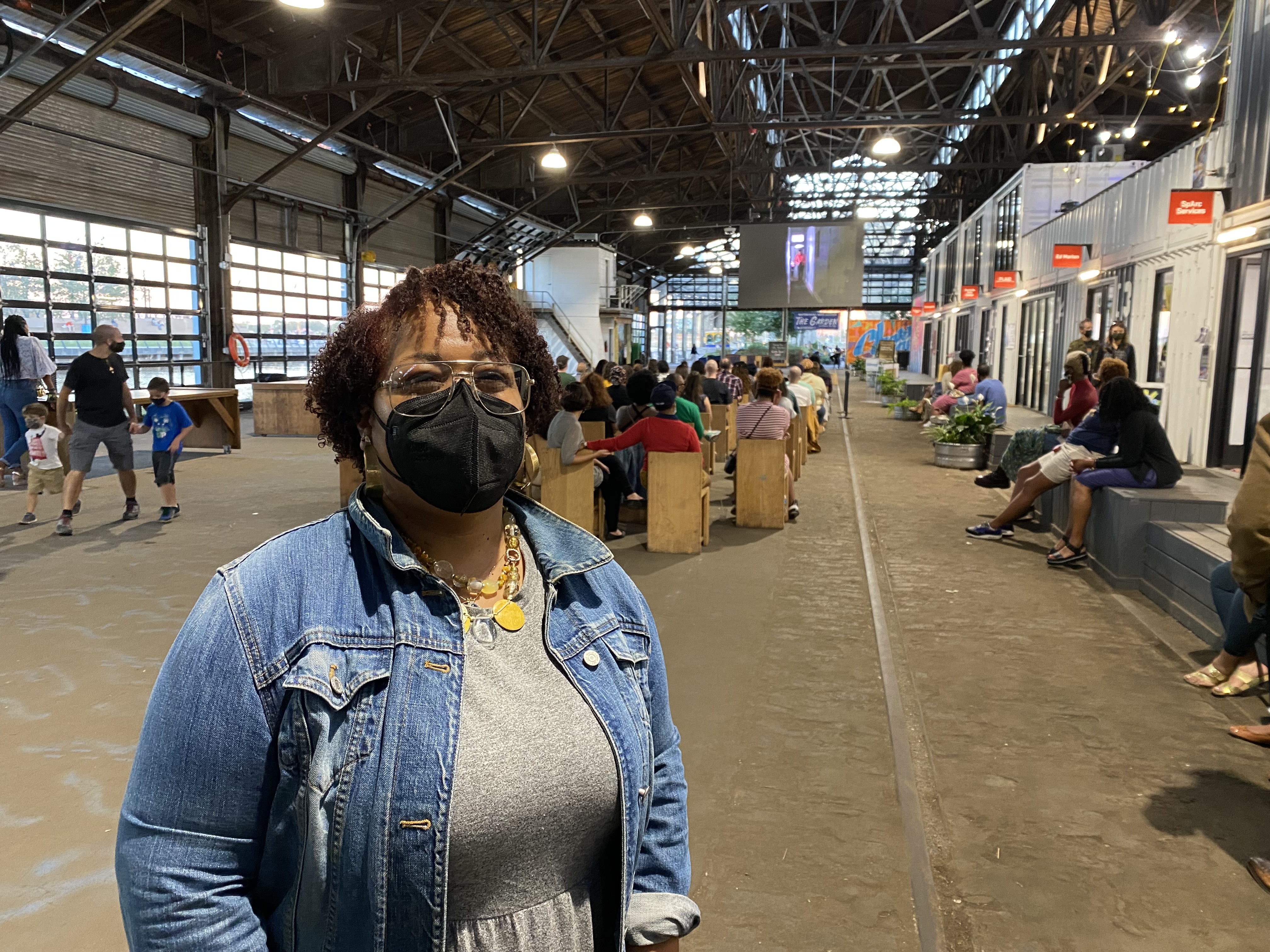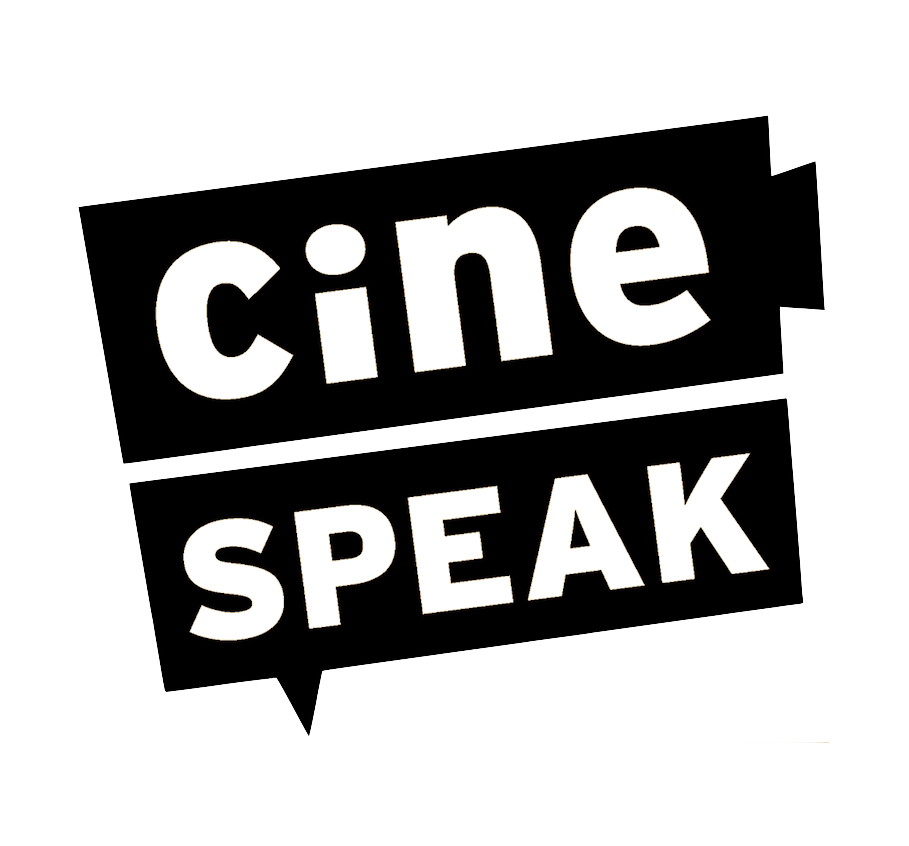
15 Oct Five Philly Filmmakers on Centering Love and Joy
BY MARIAM DEMBELE
What does joy look like? After a night of tension and self-doubt, working up the courage to ask a lover to become a partner. A moment of forgiveness and acceptance after a hard break-up. Finding connection in a new city. Living in old memories. Or simply styling the edges of a friend’s hair.
At cinéSPEAK’s On Love and Joy: Local Film Shorts showcase, five local filmmakers reflected on what love and joy means to them and how to embody those emotions within film. Using only four to eleven minutes of time, the filmmakers brought us on a journey. Some of the films began with a somberness, then pinpointed the moment of overcoming and happiness. Others weaved joy in between moments of hardship. And one film unapologetically radiated joy from beginning to end.
That was felt in the first film in the showcase, Angel Edwards’ THIS IS FOR US, a love letter to Black queer femmes and the community they build.
The film exudes love and joy, from the opening scenes where friends gather in a bedroom, reading Lucille Clifton, drinking tea, doing one another’s hair, and laughing together, to the ending credits that are filled with candid moments of the cast singing the Cheetah Girls’ “Cinderella.”
“We’re chilling, and we’re laughing, and we’re shaking our ass, and baby hairs are being laid,” says Angel. “It’s just really about being together.” With the film, Angel rejects the traditional plot devices and the idea that there needs to be pain in order for there to be happiness. They explain how they aimed to create a heavenly, playful and easeful space of surrender, filled with pastel colors, softness, and community.

“I want people to feel warm,” says Angel. “For Black queer folks who watch the film to know that this is for us. This is for us to feel, to experience, to replicate, or acknowledge that it’s happening in our lives. And if it’s not happening, this film is for you to feel a part of.”
The centering of joy carried through into Angel’s production process.
“Production was one day,” Angel says. They explain how they invited friends to come over, created a space of ease, and then let their friends’ authentic interactions guide the film. “A lot of these things weren’t built into the script, they weren’t premeditated, they were just a part of what happened that day. I feel like we all directed the film. I helped set the containers.”
For Stephanie Malson, the creator of Slow Burn, joy was also a key motivator in her decision to pursue creating the short.

“Joy is freedom. Joy is peace. Joy is finding your own way,” says Stephanie. “I brought that to the film because that’s been my journey. I’m doing this independent. With support, but not in a traditional sense. I left my old job in 2018. And if I’m being honest–and I haven’t really said this out loud, loud–but I left the job to do this. For me, joy is being in pursuit of the thing you love.”
Stephanie’s film follows two ex-lovers as they become enveloped with memories of the time they shared together. The film is filled with scenes of their past love. In one of the most poignant scenes the main character, Zara, sings Nina Simone’s “I Put A Spell On You” while her partner comes up behind her and joins her in dance. The film depicts the joy and intimacy that comes with deciding to trust another person with your heart and surrender resistance.
“For this project particularly, I really wanted to show–not just Black love, I think that’s become trendy to say–but yes, Black love. I also wanted people to remember what love feels like. What romance feels like. What someone wanting you feels like,” says Stephanie. “And that it’s possible to have this kind of love.”

Through the film, Stephanie plays with the passage of time and uses memory to bring both joy and longing into the present. “In some ways this is a meditation on love, past. But it’s also present, present in terms of our memory. It’s still with you, just not physically.”
In the last film of the night, Ingrid Raphaël’s AN ODE TO CBUS, OHIO, the theme of community reemerges. Shot over four years, the film documents Ingrid’s process of finding a home and finding oneself while in a new city. The film includes shots of the streets, the public spaces, and the buildings in Columbus. But also, the people: kids holding paint brushes and creating art, friends’ feet dangling from a bench, and crowds protesting Christopher Columbus–who the city’s name honors.
“The film for me starts out in a very tense way, where you get introduced to the person the city’s named after,” says Ingrid. “Then throughout the film you kind of see me unravel and start to appreciate parts of the city that I didn’t before. That kind of gets in line with the scene of the flower opening up and then being like ‘Is this place home for me? Can I find sustainable love and joy here?’”
Ultimately, it’s the community–the space they held for one another and the work they did together–that causes Ingrid to grow fond of Ohio. “A city is kind of the structure by which it holds us, and we are the connection by which we thrive,” says Ingrid.

The themes love and joy were very much present at the screening that night, as filmmakers and their friends and family gathered at Cherry Street Pier. The audience cheered as they saw people they knew appear on screen, they laughed at the clever cuts, and asked thought-provoking questions during the Q&A. Even masked and social-distanced, the room felt warm with community.
After a year of isolation due to the pandemic and heaviness from the constant news of violence, cinéSPEAK’s Assistant Director of Programs, Vernon Jordan III, said that creating a space that centered connection was what they were aiming for.
“It just felt like the right time to screen films about love,” says Vernon. “I think the pandemic was and still is a huge shift for us in the way that we relate to the people that we care about, so I just wanted to kind of bring some of that back. And watching movies is the perfect place to have that communal and joyous experience.”
The two other films screened at cinéSPEAK’s On Love and Joy: Local Film Shorts are:
Everything You Owe Me Directed by Tommy Butler
Dove Directed by Darien Woodard

Mariam Dembele is an organizer, writer, and multimedia journalist based in Philadelphia. Her work focuses on culture and social justice, with an emphasis on community-based solutions. Mariam serves as the Communications Coordinator at Movement Alliance Project, where she leads their Philly We Rise Program. She is also a member of cinéSPEAK’s Editorial Collective. Mariam holds a B.A. in Journalism from Temple University.

Sorry, the comment form is closed at this time.